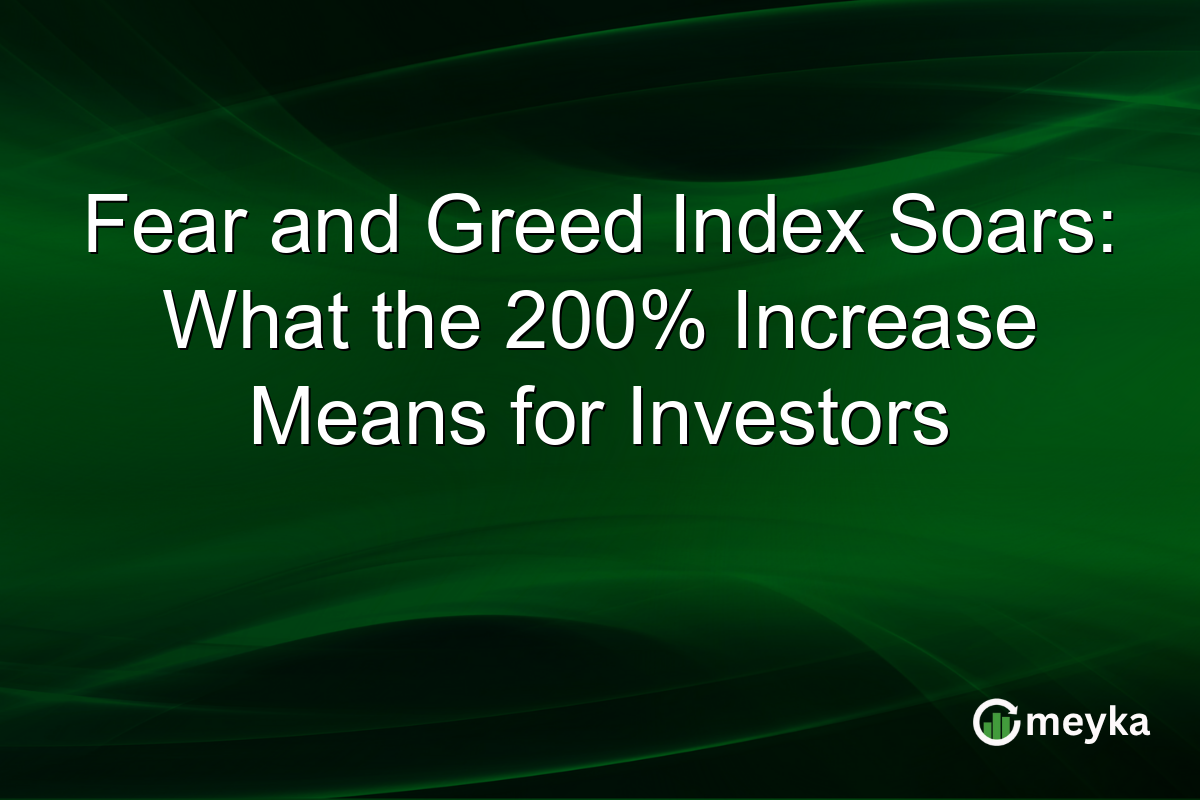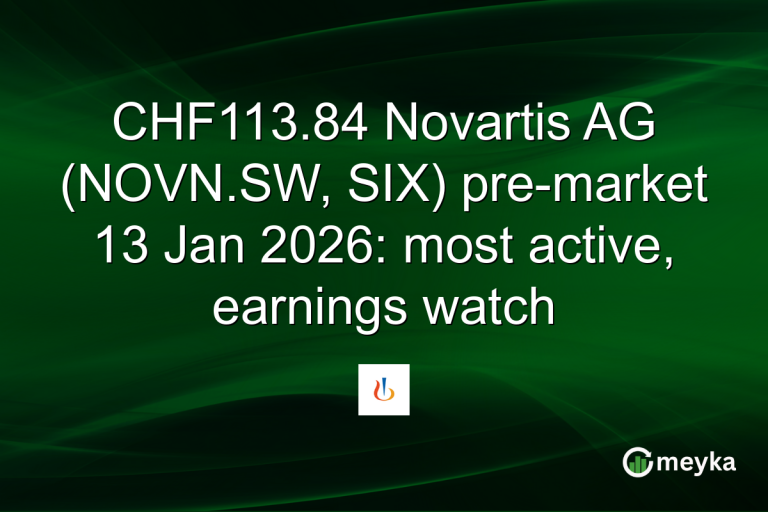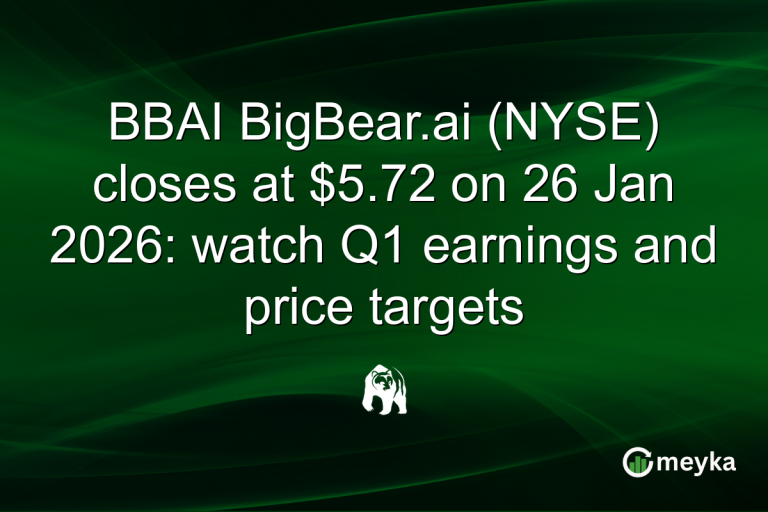Fear and Greed Index Soars: What the 200% Increase Means for Investors
The Fear and Greed Index, a crucial tool for assessing investor sentiment, has surged by 200%. This dramatic increase signals heightened emotions in the stock market, reflecting both amplified optimism and fear. The index, which evaluates factors like market volatility and stock price momentum, serves as a barometer for potential market shifts. For Canadian investors, understanding this rise can provide insight into current market dynamics and future trends.
Continue Reading on Meyka
This article is available in full on our main platform. Get access to complete analysis, stock insights, and more.
Read Full Article →





